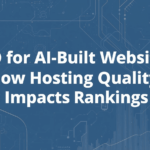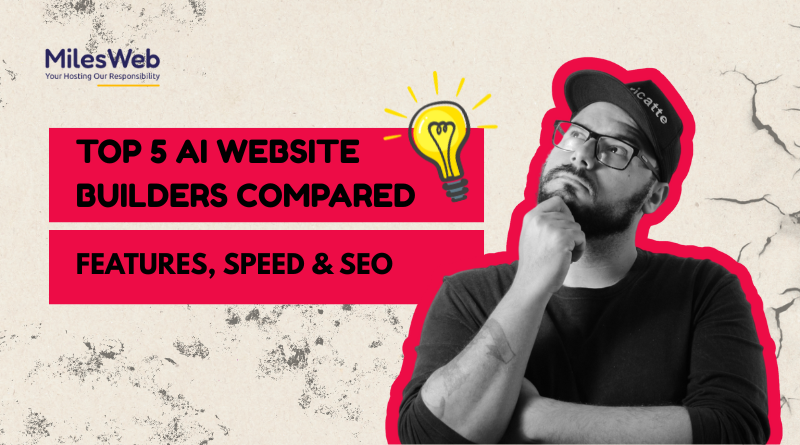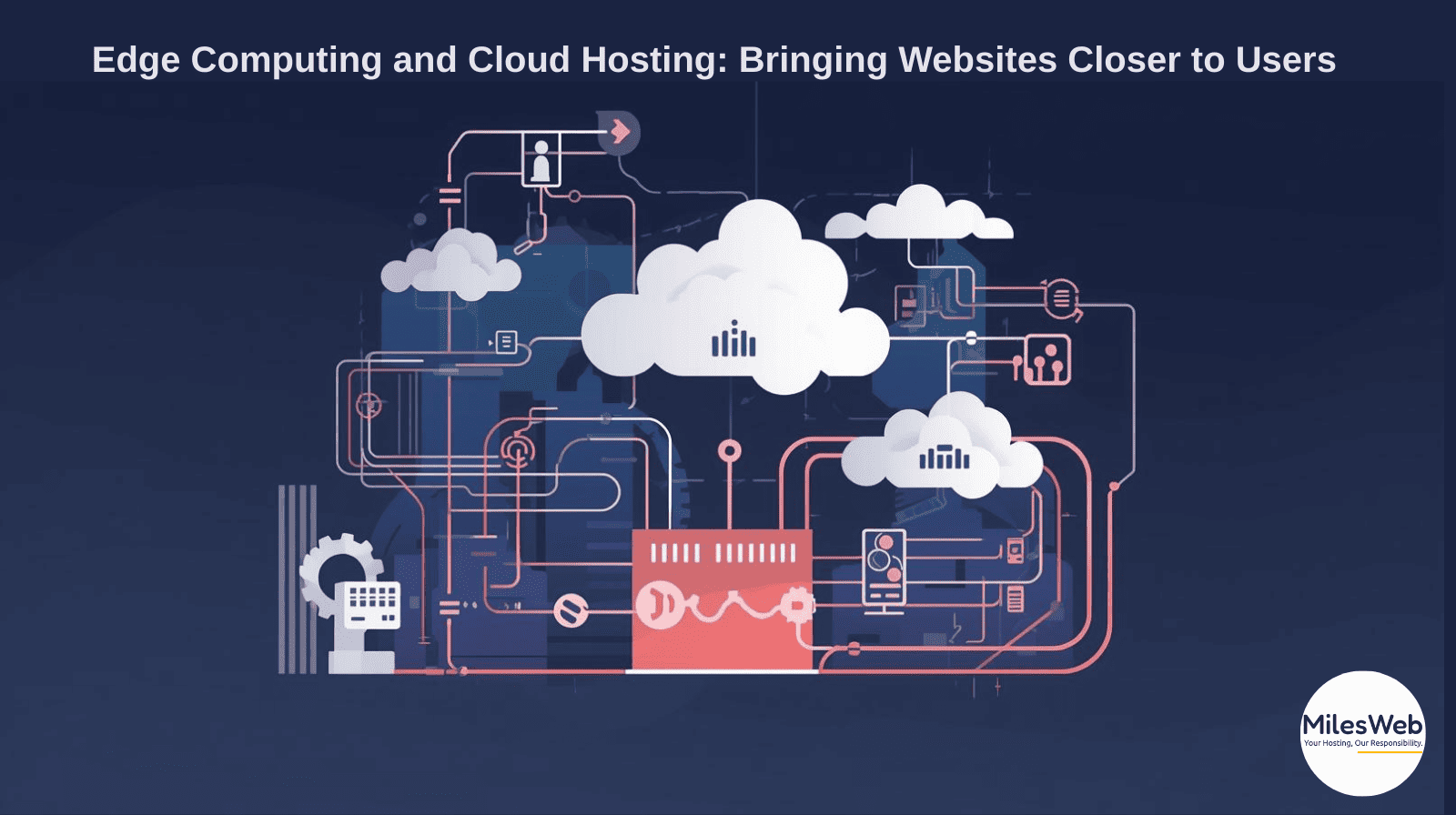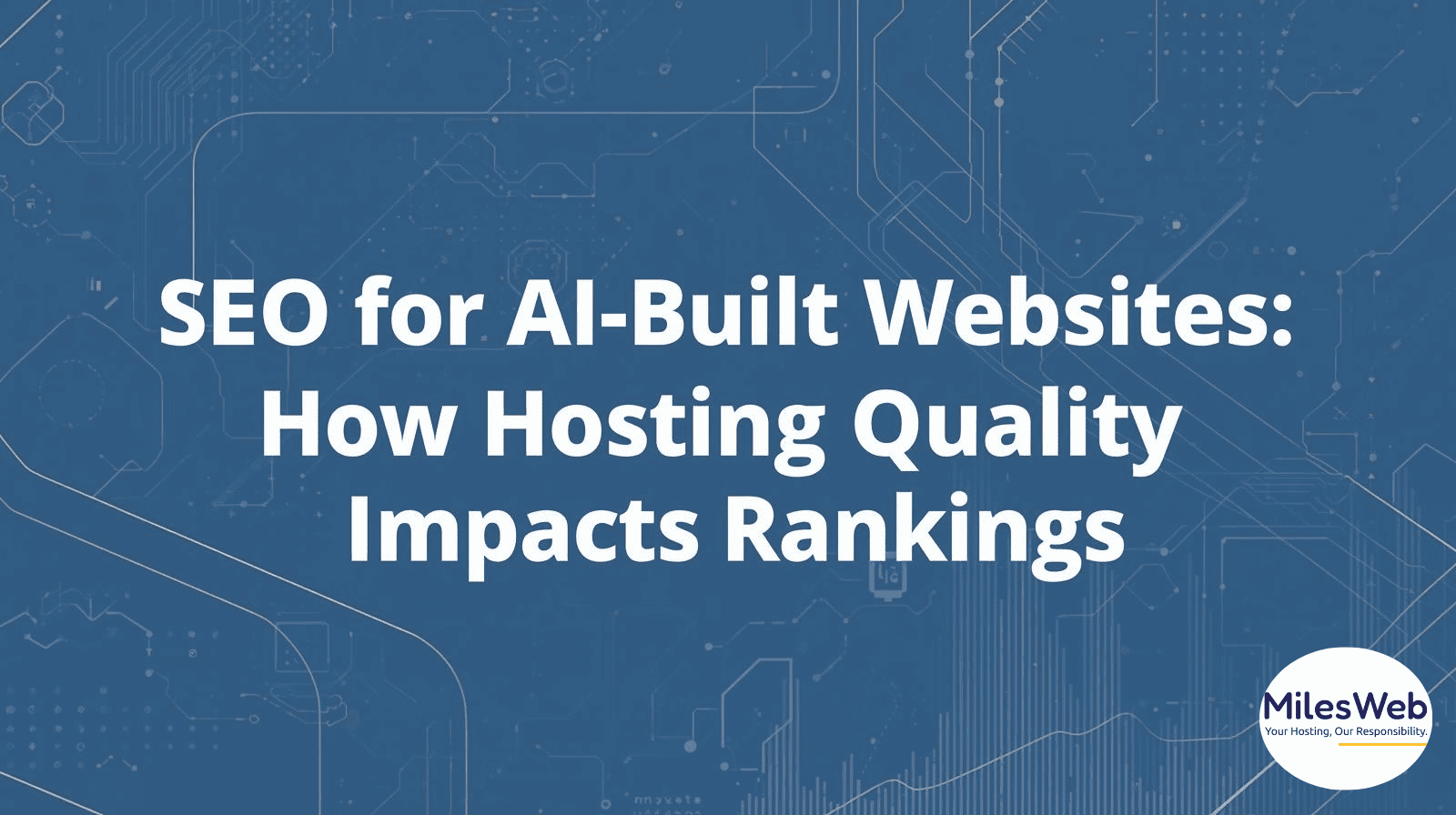Let’s get straight to what works. Building a website today should feel easy, personal, and interactive—like your best friend guiding you, not a script. With an AI website builder, you can assemble layouts, tweak design, and get a head start on SEO without a tech degree.
And guess what? You don’t have to drain your budget or juggle five different platforms. Especially when your setup includes cheap domain hosting, it’s easier than ever to get your ideas online without the usual hassle.
Let’s explore five website builders that do more than just build—they streamline, simplify, and deliver.
Top 5 AI Website Builders
1. MilesWeb Website Builder – The Concrete Choice
Why It Feels Right?
Imagine logging into one dashboard just once—then getting website setup, domain, hosting, website editing, SEO, and someone to call if something breaks. That’s MilesWeb in a nutshell. No juggling accounts, no last-minute surprises, no wondering if something important slipped through the cracks.
What You Actually Get
- An intuitive builder that asks a few key questions, then crafts a working website with layout, content blocks, and mobile-ready design.
- Fast and reliable hosting—SSD speed, strong uptime, backups, security, SSL, daily backups.
- A free domain, along with SEO tools like meta tags and sitemaps already embedded.
- Friendly support 24/7 when your brain is scrambling at midnight and the website doesn’t look right anymore.
Why That Matters?
Other platforms might offer fancy features, but they often leave you spinning when it comes to billing, linking, and making all the pieces fit. MilesWeb places everything where you can see it—so you aren’t searching through a dozen tabs and login pages to keep your website up and running.
2. Wix ADI – Quick and User-Friendly
Why It Feels Right?
Wix ADI is like a digital buddy who steps in, asks what your website is about, and drafts a version within 10 minutes. Layouts work fairly well on phones, SEO basics like meta descriptions are easy to fill in, and you can go live fast.
What You Should Know?
Once you move away from the ADI mode into the full editor, it’s a bit fragile—layouts may shift, spacing may change, and suddenly, that tidy page you built looks tangled. Keep that in mind before you switch modes.
3. Bookmark’s AIDA – Smart and Conversational
The Feels-Like-a-Chat Approach
Bookmark’s AIDA doesn’t just spit out a website—it asks two or three questions, shows a draft, and then says, “What if we do this…?” It watches what visitors click on and gently nudges you to make tweaks. It’s less provider, more co-pilot.
What You Lose in Return?
That conversational style is engaging; however, it lets go of a little design flexibility. If your website needs to grow later, the draft may feel more like training wheels than a long-term frame.
4. Zyro – Clean, Fast, No Drama
The Straightforward Toolbox
Zyro keeps things smooth—you get drag-and-drop, lightning-fast builder tools, and even a heatmap AI that hints at where visitors’ attention lands. Handy for figuring out where to put your big buttons or hero images.
Where It Does and Doesn’t Work?
It’s perfect if you want a tidy presence, not a massive store or blog. Once you’ve packed everything in one of their templates, you may find it difficult to gently expand or add adventurous features.
5. Framer AI – Design-Focused and Creative
Ideal For Visual Storytellers
Framer AI comes alive if you describe what you want—maybe a hero image, animated intro, scrolling layout—and it builds a polished experience that looks like studio work. You get clean HTML, thoughtful responsiveness, and code that runs well.
Just Don’t Expect an All-in-One Platform
Framer’s output looks great, but you still have to look for web hosting, get your domain, and manage content logistics. It’s in league with designers or small teams, but less friendly if you want to keep everything under one roof.
Where SEO Meets Speed: The Real Dealbreaker?
It’s tempting to chase flashy layouts or cutting-edge features. However, keep in mind—if your website doesn’t load fast or rank well, none of it matters. This is where a few website builders fall short. Fancy transitions, auto-generated layouts, or bloated scripts can slow down your page, hurting both your traffic and SEO.
MilesWeb doesn’t just help you launch—its SSD-powered servers and advanced optimization techniques make sure your website stays fast. Google doesn’t hand out rankings for free; it rewards performance. And when your pages load fast, bounce rates drop. Customers stay longer. Conversions go up.
On the other hand, some AI-driven builders look pretty but can drag down your performance under lazy code. You get extra lines, odd behaviors, or inconsistent metadata that search engines penalize. If you want a website that performs today and has stays strong over-time, you want control, clarity, and speed built in from day one. That’s where MilesWeb has a natural edge—it’s not just smart, it’s built for results.
Closing Insights
Each platform has its merit, depending on your comfort level and needs:
- Wix gets you up quickly.
- Bookmark talks to you, learns with you.
- Zyro is neat, simple, and reliable.
- Framer gives you design freedom.
But none of them wrap everything—builder, hosting, domain, support—into one cohesive package like MilesWeb.
MilesWeb stands out because it covers the essentials without requiring you to be a logistics expert. That’s what puts it ahead for people who care more about results than shiny promises.
What really makes a website builder worth your time isn’t just AI—it’s peace of mind. When everything connects smoothly, support is responsive, and you don’t need five separate subscriptions just to stay online, that’s when a platform truly adds value. For solo creators, small businesses, or anyone who just wants the tech to work without constant oversight, MilesWeb checks the boxes that matter. You pour your energy into the ideas—MilesWeb takes care of everything behind the scenes.






